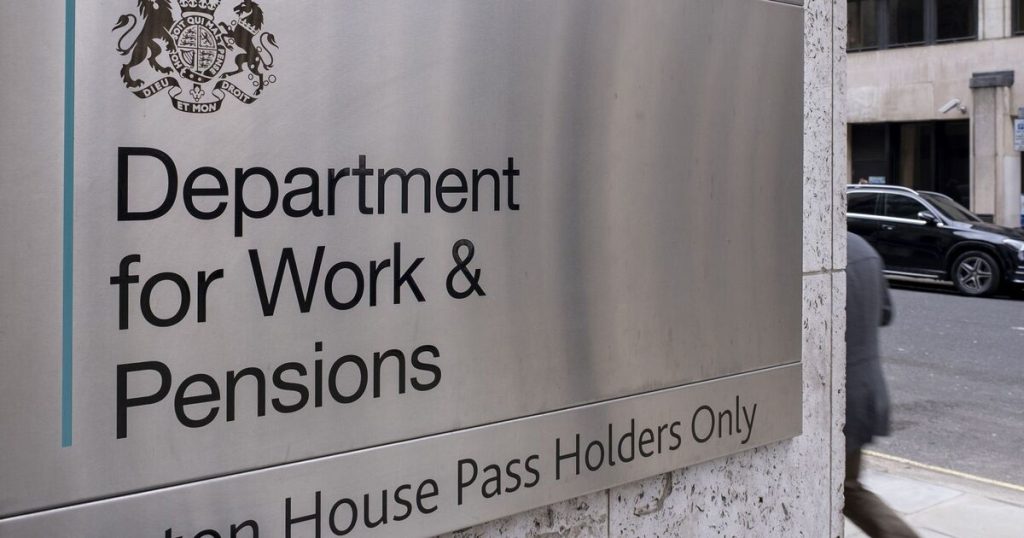
The Department for Work and Pensions (DWP) has delivered a crucial update to Universal Credit claimants who are also renters, announcing that it will review the current system which permits landlords to automatically claim a portion of tenants’ benefits for rent arrears.
The decision to scrutinise the protocol follows a significant High Court verdict last month that slammed the existing setup as “unfair” and “unlawful.”
At present, an automated procedure greenlights requests from landlords to subtract up to 20% of a claimant’s monthly Universal Credit payout to settle outstanding rent without any consultation involving the tenant or the DWP—a policy that has sparked fears of deepening poverty among the most vulnerable by accruiting additional debt.
This automated deduction approach was challenged in court by Nathan Roberts, a Universal Credit recipient and law graduate.
Roberts faced over £500 being snipped from his benefit by his landlord for alleged rent arrears during a period when he contended with his landlord over purported neglected repairs.
Nathan was previously receiving £1,218 monthly from Universal Credit, which included a standard allowance of £364.74, a £459.64 housing component for rental costs, and a £390.06 incapacity top-up due to his disabilities. However, the DWP informed him that he would no longer receive his housing component, and an additional deduction of £44.74 would be made to clear supposed rental arrears.
Although claimants can challenge such decisions, it involves a lengthy internal process, potentially leaving them unable to reverse the deductions for several months.
Nathan contended that the DWP had approved the deduction without consulting him on its impact and failed to notify him about the deduction application initially, reports the Mirror.
He also maintained that he had no arrears and was in a “genuine rent dispute” with his landlord over the property’s habitability. During the hearing, the judge noted that in disputes over repairs, withholding rent might be the tenant’s “only leverage which a tenant has,” and DWP decision-makers could inadvertently undermine the tenant’s protections.
He emphasised the “real-world impacts” on tenants who, even after successfully challenging the decision through lengthy internal DWP appeal processes, could not reverse the deductions for months, leaving them on reduced benefits. The Work and Pensions Secretary confirmed this week that the DWP would not contest the court’s decision.
The government department is set to scrutinise the current procedure and explore more equitable methods to ensure that landlords are paid their due rent, whilst also safeguarding housing benefit recipients from sinking into debt. This initiative arrives amid the DWP’s efforts to “fix the broken welfare system to make it fairer and ensure it improves living standards which will unlock economic growth”.
On Tuesday, Work and Pensions Secretary Liz Kendall emphasised the department’s commitment to correcting enduring issues within the benefits infrastructure. She asserted: “The automatic approval of landlords’ requests for tenants’ benefits to be deducted is one of these.”
Kendall continued her stance on reform: “As well as urgently reviewing this system, I am bringing forward major changes to the health and disability benefits system so that it works for everyone, underpinned by the biggest employment reforms in a generation. We will continue to listen to people’s concerns, and transform our benefits system to one of fairness, not punishment.”
Sir Stephen Timms MP, the Minister for Social Security and Disability, further remarked on the necessity for overhaul: “The benefits system needs urgent reform and we are taking action across the board to do this – whether that’s tackling the huge accumulation of debt by Carer’s Allowance recipients through no fault of their own, or this automatic deduction of benefits purely at the request of a landlord.
“Combined with our efforts to Get Britain Working and our upcoming health and disability benefits reform, all of this will lead to better support for those who need it, and open doors for those who can work.”







